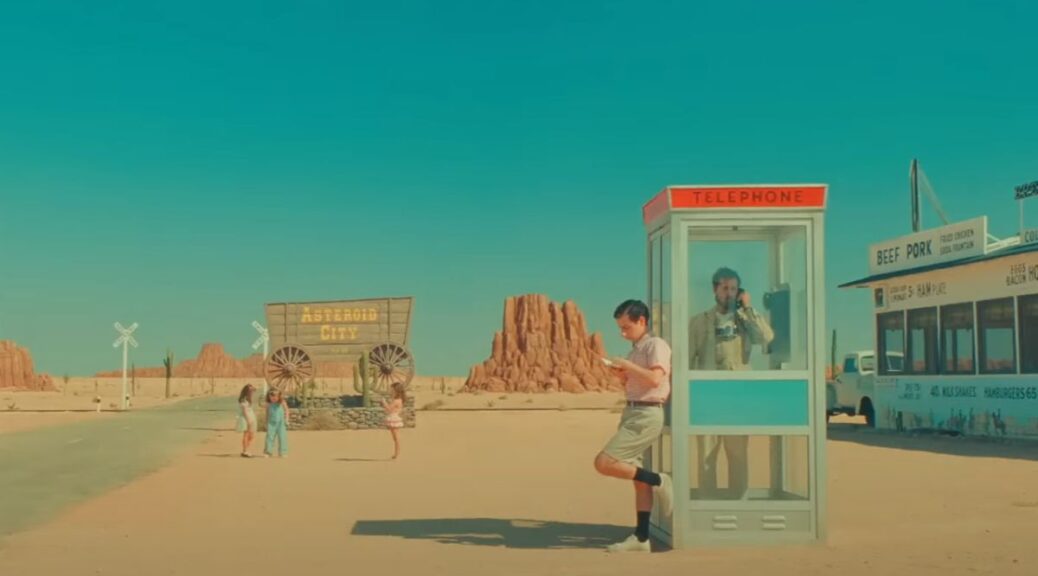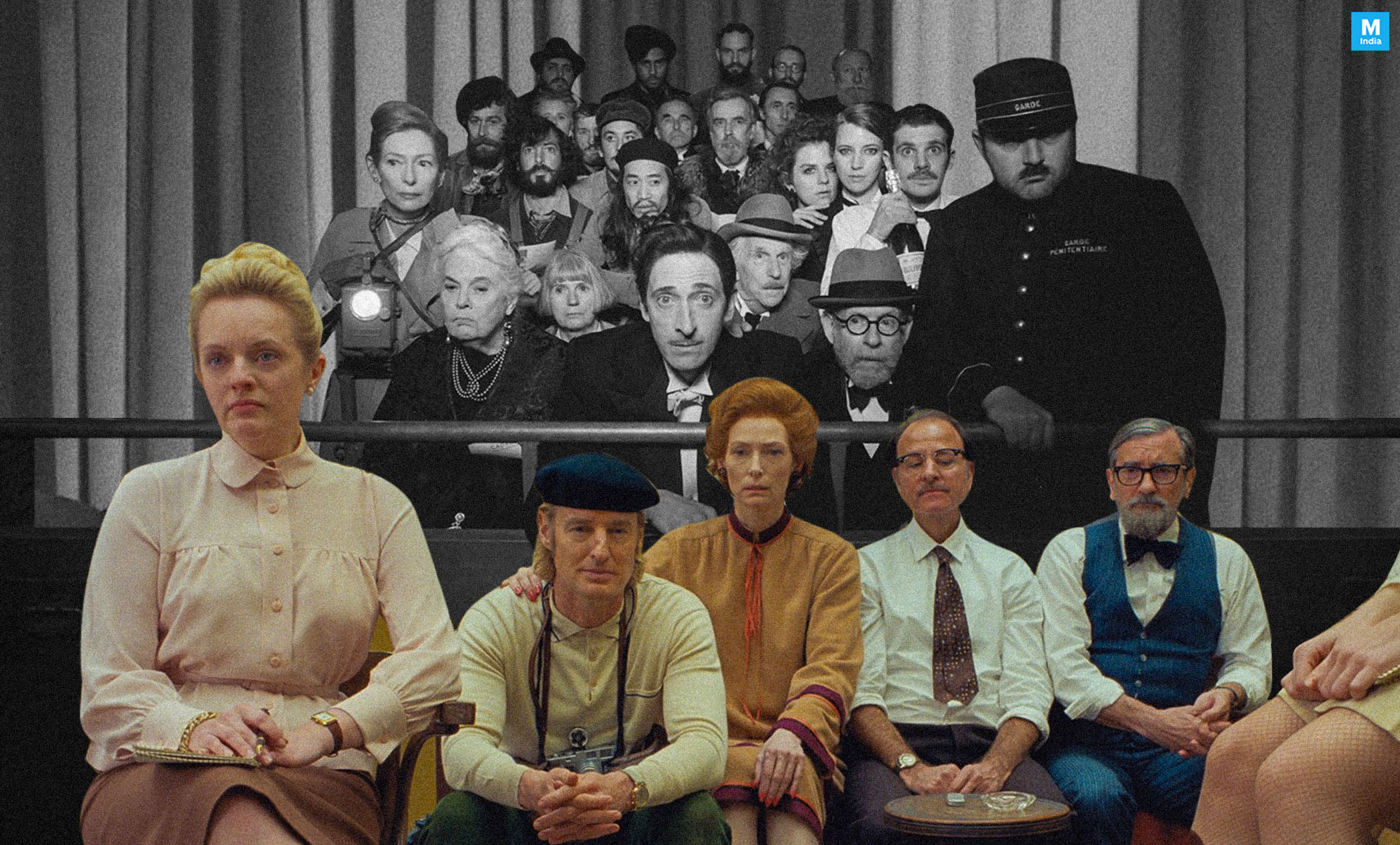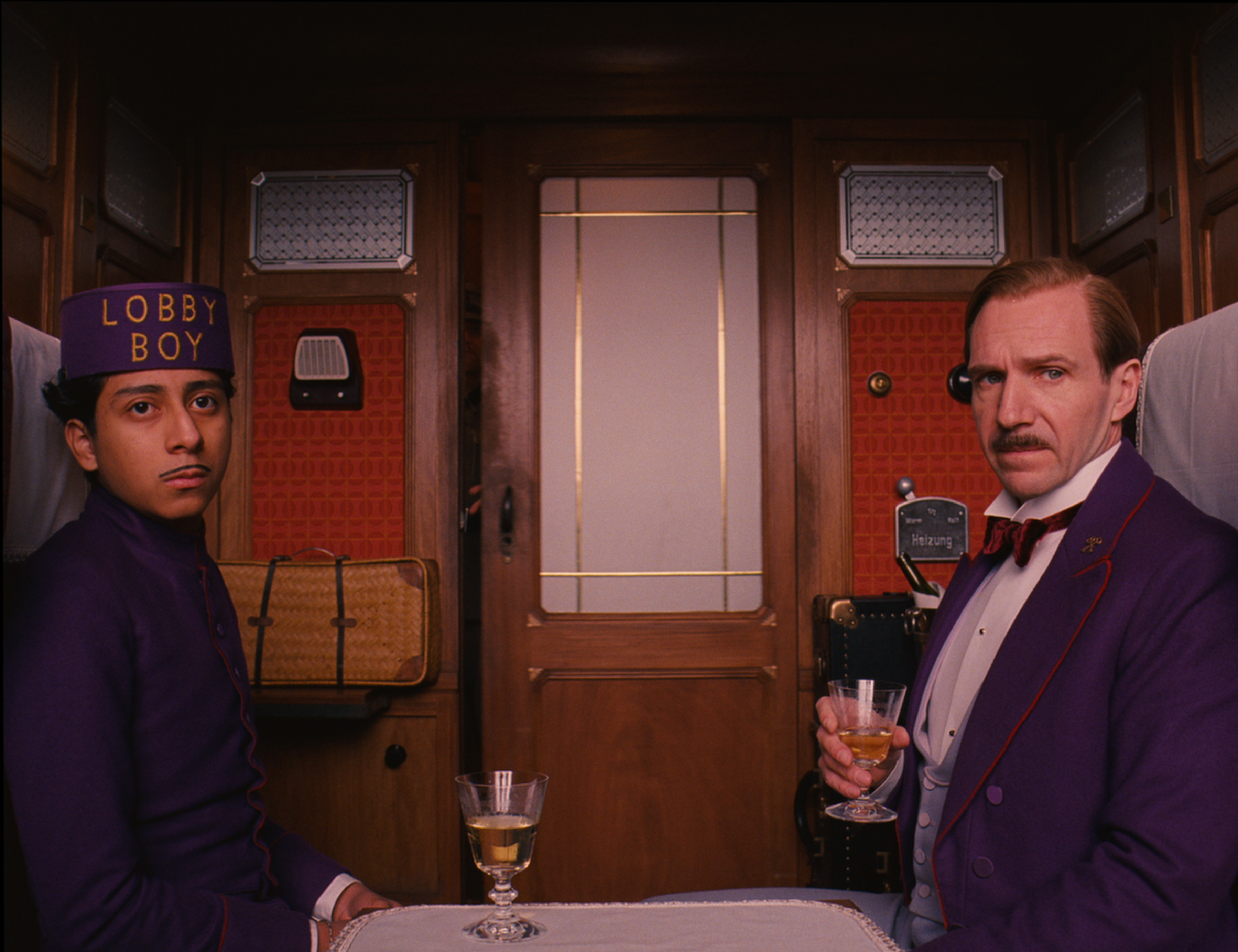Asteroid City
by Hope Madden and George Wolf
Welcome to Asteroid City, a grief comedy that may be the most Wes Anderson-y movie Wes Anderson has ever made. Or, welcome to “Asteroid City” – the stage play from famous writer Conrad Earp (Edward Norton) upon which Asteroid City, the film (TV show?) is based. Actively. Brian Cranston will explain as he, the narrator of “Asteroid City”, deconstructs the meticulous framing device Anderson crafts to keep us just one layer further from chaos.
“We are all just characters in a play that we don’t understand.”
As is so often the case, writer/director Anderson painstakingly creates a world – colorful, peculiar, emotionally tight lipped – brimming with characters (equally colorful, peculiar and emotionally tight-lipped). Brimming. About 50 speaking characters stand or sit precisely on their mark, perfectly framed, each one doing their all to keep chaos at bay.
Like Augie Steenbeck (Jason Schwartzman), a widowed war photographer stranded with his teenaged son (scene-stealer Jake Ryan from Eighth Grade) and three daughters in the clean desert nowhereville of Asteroid City, where a “stargazing event” will soon commence. Cinematographer Robert D. Yeoman’s 360-degree swivel shows all you need to see: diner, roadway cabins, onramp to nowhere, and the garage where the town mechanic (Matt Dillon) has found that Augie’s wagon is now deceased.
Augie’s father-in-law Stanley Zak (Tom Hanks, in the usual Bill Murray role) fires ups his Cadillac and arrives for a rescue, only to find no one can leave Asteroid City on account of the alien.
Yep, an alien! He just came down sure as you please and made off with the city’s prized meteorite! Everybody saw it – including famous actress Midge Campbell (Scarlett Johansson) and all the visiting school kids in Miss June’s (Maya Hawke) class!
So the whole city’s on lockdown, while General Gibson (Jeffery Wright) and Dr. Hickenlooper (Tilda Swinton) assess the situation and Augie realizes he just may have snapped the only photo of an honest to goodness alien.
All the unique and wonderful trademarks of Anderson’s craftsmanship are on display. Both the city itself, and the surrounding stage area where the play is performed, are given distinct aesthetics that benefit equally from Anderson’s commitment to symmetry, palette and depth-of-field.
The wordplay is succinct and witty per usual, dancing through themes of science, art, and Cold War paranoia. But while Anderson’s last film, The French Dispatch, left its procession of indelibly offbeat characters to fend for themselves, this time they’re connected with the sterile humanity that buoys the best of his work.
“You can’t wake up if you don’t fall asleep!”
You’ll hear that several times in Asteroid City, enough to know that Anderson hopes we’re paying attention. Leave yourself open – to what art, and science, is saying – and your world might seem a little more colorful.




